Google have now finally unveiled their new cloud gaming service named Stadia, offering instant access to play games in Google Chrome.
What they joked was the worst-kept secret in the industry (no kidding), sounds like quite an interesting service. Certainly one that could eventually end up redefining what gaming is. A little hyperbolic maybe? I'm not so sure considering how easy this should be to jump into a game. On top of that, they very clearly talked about how it's built on Linux (Debian specifically) and Vulkan with custom GPUs from AMD.
Something they showed off, was how you could be watching a game trailer with a button to play it on Stadia and (supposedly within a few seconds) you would jump right into it. That's quite en exciting idea, one that would easily pull in quite a lot of people I've no doubt.
As for resolution, they said it will support 1080p and 4K around 60FPS at release with 8K being worked on as well but that sounds further out if anyone even cares about 8K right now.
They also showed off their new controller, with a dedicated Google Assistant button and a button to capture video immediately for YouTube:
While Google are making their own dedicated gamepad, they did say it will be compatible with other devices too.
They also announced partnerships with both Unity and Unreal Engine and Stadia will "embrace full cross-platform play" including "game saves and progression". They also had id Software, talk about how it didn't take long to bring the new Doom Eternal to Stadia, thanks to how they made the previous Doom game with Vulkan.
This means, that development for Linux is suddenly going to become a priority for a lot more developers and publishers. I don't want to overstate how important that is, but it's a very exciting prospect. This doesn't suddenly mean we're going to see a lot more Linux games on the desktop, but it's entirely possible after they go through all the work to get the games working on Linux with Vulkan for Stadia.
Stream Connect is another service they talked about. They mentioned how developers have pushed the boundaries of gaming but often local co-op is left out, as doing it multiple times in top-end games can require really beefy hardware. With Stadia, each instance would be powered by their servers so it wouldn't be such an issue. They also talked about how if you're playing some sort of squad-based game, how you could bring up their screen to see what they're doing which sounds very cool.
Google also announced the formation of their own game studio, Stadia Games and Entertainment, to work on exclusive games for their new service.
As for support from more external game developers, they mentioned how they've shipped "development hardware" to over 100 developers. From what they said, it should be open to smaller developers as well as the usual AAA bunch.
Stadia is confirmed to be launching this year and it will be first available in the US, Canada, UK and "most of Europe". One thing wasn't mentioned at all—price, but they said more details will be available in the summer. The official site is also now up on stadia.com and developers have their own website to look over.
Google also posted up some extra information on their developer blog:
Google believes that open source is good for everyone. It enables and encourages collaboration and the development of technology, solving real-world problems. This is especially true on Stadia, as we believe the game development community has a strong history of collaboration, innovation and shared gains as techniques and technology continually improve. We’re investing in open-source technology to create the best platform for developers, in partnership with the people that use it. This starts with our platform foundations of Linux and Vulkan and shows in our selection of GPUs that have open-source drivers and tools. We’re integrating LLVM and DirectX Shader Compiler to ensure you get great features and performance from our compilers and debuggers. State-of-the-art graphics tools are critical to game developers, and we’re excited to leverage and contribute to RenderDoc, GAPID and Radeon GPU Profiler — best of breed open-source graphics debugging and profiling tools that are continually improving.
There's probably plenty I missed, you can see their video on YouTube here.
As exciting and flashy as it sounds, it's obviously not Linux "desktop" gaming which is what the majority of our audience is likely interested in. However, things change and if it does become a huge hit we will cover it more often if readers request it. Linux gaming can mean all sorts of things from native games to emulators, Wine and Steam Play and now perhaps some cloud gaming so I don't want to rule it out. However, I can't see this replacing Steam, Humble, GOG, itch.io and so on for me personally.
Obviously there’s still a lot of drawbacks to such a service, especially since you will likely have zero ownership of the actual games so they could get taken away at any time when licensing vanishes. At least with stores like Steam, you still get to access those games because you purchased them. Although, this does depend on what kind of licensing Google do with developers and publishers, it might not be an issue at all but it’s still a concern of mine. Latency and input lag, are also two other major concerns but given Google's power with their vast networks, it might not be so bad.
Also, good luck monitoring your bandwidth use with this, it's likely going to eat up a lot all of it. YouTube and Netflix use up quite a bit just for watching a 30-minute episode of something in good quality, how about a few hours per day gaming across Stadia? Ouch.
That doesn't even address the real elephant in the room, you're going to be giving Google even more of your data if you use this service, a lot more. This is the company that failed to promptly disclose a pretty huge data leak in Google+ after all. I don't want to be some sort of scaremongering crazy-person but it's something to think about.
As always, the comments are open for you to voice your opinion on it. Please remain respectful to those with a different opinion on the matter.
You should remember that Google is mainly an advertisement company, and you are their product.
I would be really scared about how detailed a personal profile they can build by learning all your gaming habits and how much they will learn about you by all the choices you make in the games.
All the possibility in the data mining and profiling with these added details of personality through gaming.
And as all the games would be streamed, you are not able to block the data mining by firewalls or by going offline.
Google provides the option not to do personalized advertising if you opt out. You can also download your data to see what's collected, or choose to delete them. You don't need a firewall for that, as there are builtin options in your Google account itself. You are still their product and you get ads, but can choose not to be a subject of machine learning.
You can choose not to trust that Google says the truth. I honestly didn't prior to joining Google. But I can say with good confidence that they don't try to hide the truth (bugs and mistakes happen, which are sometimes mistaken for malicious intent)
"Mistakes", like sniffing everyone's wifi routers, border on, or are actually illegal in some jurisdictions. If Google management do not encourage poor behaviour ( per the motto ), then as a grown-up company they will need to do a lot more to restore trust in their attitude, and the competence of their hiring and management procedures.
Google moved from my "good" bucket to my "bad" bucket over issues like that, and they remain there. Not as bad as Microsoft, or Apple, but not that far from them either.
Good points there about how they were bitten by too much reliance on HLSL and MS tools. And of course, despite releasing it for Stadia, there is still no desktop Linux version.
What is sad is the fact that Assassin's Creed: Odyssey is available on Steam. Why not release it then? Must not be that much work...
Edit:
https://www.protondb.com/app/812140
Last edited by Mohandevir on 27 Mar 2019 at 2:17 pm UTC
Last edited by Mohandevir on 27 Mar 2019 at 2:41 pm UTC
Just thinking about it... It's probably related to UPlay stuff? Ya know... No UPlay on Stadia but UPlay on Desktop... And no Linux version of UPlay so no Linux version of Assassin's Creed...
The version they made is likely unsuitable for normal use in more ways than just uplay. Think display output (the new Vulkan extensions) and control input handling for instance. Probably also differences with how it stores progress. So even though the biggest component was made to run on Linux, it's not everything that's needed for Steam. And I don't expect them to "bother" with it for less than a percent. It's simply not in the nature of the big publishers.
Just thinking about it... It's probably related to UPlay stuff? Ya know... No UPlay on Stadia but UPlay on Desktop... And no Linux version of UPlay so no Linux version of Assassin's Creed...
The version they made is likely unsuitable for normal use in more ways than just uplay. Think display output (the new Vulkan extensions) and control input handling for instance. Probably also differences with how it stores progress. So even though the biggest component was made to run on Linux, it's not everything that's needed for Steam. And I don't expect them to "bother" with it for less than a percent. It's simply not in the nature of the big publishers.
Which comes too... No matter the size of the task, just the fact that there is an hurdle, they won't bother, hence SteamPlay.
Last edited by Mohandevir on 27 Mar 2019 at 2:59 pm UTC
https://www.youtube.com/watch?v=5I1KvNvUkO4
Just for an interesting perspective from Ubisoft.
--edit: about 11 minutes in, yes, they ported to "Linux" (I assume GNU/Linux) internally when first getting ready for Stadia.
Thanks, that was interesting to watch. Yes, I would say they ported all the CPU code to Linux, or obtained/ported the Linux version of middle-ware they used.
They still use the DirectX shader language, as I would expect most established studios to keep doing for the foreseeable future, but that is host-independent anyway, and can be compiled to any intermediate language.
One notable thing was the start of the talk, which is aimed at developers rather than gamers, where he confirmed what we all suspect, that large parts of the developer community see streaming as the perfect solution to what they consider to be the problem of piracy.
Good points there about how they were bitten by too much reliance on HLSL and MS tools. And of course, despite releasing it for Stadia, there is still no desktop Linux version.
They still use HLSL and don't seem to have had particular problems with it. For the rest, there was just a highlighting of the fact that where DX12 and Vulkan differ in architecture, you need to design to somehow cater for both, regardless of which you start with. This is roughly in line with other developers have said.
Also worth noting is that having a Stadia/Linux version for a single hardware target is more like having a console version than a desktop version - quality and framerate are fixed. They may be working on completing the Linux support for arbitrary hardware, but personally, I doubt it. The presenter's early comments suggest Ubisoft may be thinking of swapping PC support for Streaming services support.
The presenter's early comments suggest Ubisoft may be thinking of swapping PC support for Streaming services support.
If I get it right and following this logic, may happen the day when streaming is the only way to go?
Depends on consumer reaction, which I would not venture to predict.The presenter's early comments suggest Ubisoft may be thinking of swapping PC support for Streaming services support.
If I get it right and following this logic, may happen the day when streaming is the only way to go?
If Stadia becomes a sizable thing, I wonder if someone will ever create a sort of wrapper that turns Stadia Linux ports into real desktop Linux ports.Just thinking about it... It's probably related to UPlay stuff? Ya know... No UPlay on Stadia but UPlay on Desktop... And no Linux version of UPlay so no Linux version of Assassin's Creed...
The version they made is likely unsuitable for normal use in more ways than just uplay. Think display output (the new Vulkan extensions) and control input handling for instance. Probably also differences with how it stores progress. So even though the biggest component was made to run on Linux, it's not everything that's needed for Steam. And I don't expect them to "bother" with it for less than a percent. It's simply not in the nature of the big publishers.
Which comes too... No matter the size of the task, just the fact that there is an hurdle, they won't bother, hence SteamPlay.
If Stadia becomes a sizable thing, I wonder if someone will ever create a sort of wrapper that turns Stadia Linux ports into real desktop Linux ports.
I doubt it. You won't be able to access the game files. Unless someone from Google did it, but I highly doubt they'd be allowed to do that.
No, I know it wouldn't be usable at a consumer level. But there could be a tool such that if I'm a game developer and I've put my game on Stadia, I shim it to this thing and it works on a normal Linux, making a desktop release really easy.If Stadia becomes a sizable thing, I wonder if someone will ever create a sort of wrapper that turns Stadia Linux ports into real desktop Linux ports.
I doubt it. You won't be able to access the game files. Unless someone from Google did it, but I highly doubt they'd be allowed to do that.
If Stadia becomes a sizable thing, I wonder if someone will ever create a sort of wrapper that turns Stadia Linux ports into real desktop Linux ports.
I was thinking the same thing. To simplify porting for the likes of lazy Ubisoft (which has piles of money to do it properly, but whatever). Just another incentive to release for Linux.
I.e. something like SDL - Stadia plugin.
Last edited by Shmerl on 27 Mar 2019 at 8:21 pm UTC
The presenter's early comments suggest Ubisoft may be thinking of swapping PC support for Streaming services support.
If I get it right and following this logic, may happen the day when streaming is the only way to go?
There will always be locally installable games, but it is entirely possible that some companies like Ubisoft or EA would decide to move away from both physical and downloadable games sales on "uncontrolled" platforms.
Not yet, though. Streaming, like VR, has yet to prove it is workable; any move in that direction would be gradual.
No actually sure what's being asked for here. It was mentioned that for the "PC Vulkan port" there was essentially one file different to that maintained for Stadia. No wrapper is needed - it already works, mostly because they want to test it locally. And in this case, Ubisoft wasn't being lazy - they are indeed trying to do things proper (for reasons of Stadia, but it helps desktop regardless), and some of their feedback into tooling has been helping AMD (and Google) focus on those areas.
So what would the wrapper be used for really? I mean, all the middleware problems, input, networking, audio, etc, had to be resolved to make it work with Stadia anyway. So I'm not sure what's really left for a wrapper to do (compared to a Stadia port).
Stadia is different from our regular desktop use case. Think about how it handles input. It's routed to the game from the network, not from your local keyboard and mouse attached to the computer. Same way, output doesn't go to regular Vulkan swapchains aimed at the display, it's packed into some video stream, sent out to the user.
If I understood correctly, Stadia SDK provides those features in the form of some API for the developers. So taking Stadia game as is won't work locally, without going through some unnecessary clunky client server setup (and it's not clear even if the server side of Stadia is open source).
So to convert that into a proper desktop usable code, something needs to be changed. Or some kind of shim implemented like above.
Proper changes might be small, but Ubisoft is too lazy to do even that small amount. Shim might make it practically seamless, though knowing Ubisfot or Bethesda, even that won't help them ;)
Last edited by Shmerl on 27 Mar 2019 at 8:47 pm UTC
Say, it only just occurred to me--this lets people play games on wimpy little computers. Wonder if there's a Chromebook tie-in?
Well, low-capability clients using the Internet to access huge data-hoovering services is Google's DNA. They don't much care what the client is, but I'm sure Chromebooks and other weak devices are their preference, as they are more likely to use google services heavily.
Most of the big IT providers are moving/have moved in that direction, and the notion of subscription charging; everyone prefers regular revenue to lumpy, hit-or-miss, product launches.
Without seeing the Stadia SDK, I suspect their input handling is very similar to that provided by SDL2 (if not a modified version of SDL2 itself), or can be easily wrapped into existing input abstraction. So the game engine sees it as just normal input rather than anything more fancy.
That's why I don't think a wrapper is necessary.
If they aim to be compatible with SDL2 - even better. But so far there are not enough details on this.
No actually sure what's being asked for here. It was mentioned that for the "PC Vulkan port" there was essentially one file different to that maintained for Stadia. No wrapper is needed - it already works, mostly because they want to test it locally. And in this case, Ubisoft wasn't being lazy - they are indeed trying to do things proper (for reasons of Stadia, but it helps desktop regardless), and some of their feedback into tooling has been helping AMD (and Google) focus on those areas.
So what would the wrapper be used for really? I mean, all the middleware problems, input, networking, audio, etc, had to be resolved to make it work with Stadia anyway. So I'm not sure what's really left for a wrapper to do (compared to a Stadia port).
Stadia is different from our regular desktop use case. Think about how it handles input. It's routed to the game from the network, not from your local keyboard and mouse attached to the computer. Same way, output doesn't go to regular Vulkan swapchains aimed at the display, it's packed into some video stream, sent out to the user.
If I understood correctly, Stadia SDK provides those features in the form of some API for the developers. So taking Stadia game as is won't work locally, without going through some unnecessary clunky client server setup (and it's not clear even if the server side of Stadia is open source).
So to convert that into a proper desktop usable code, something needs to be changed. Or some kind of shim implemented like above.
Proper changes might be small, but Ubisoft is too lazy to do even that small amount. Shim might make it practically seamless, though knowing Ubisfot or Bethesda, even that won't help them ;)
I would guess that Stadia input reader, reading your controller/mouse/keyboard over WIFI probably just packs/sends/unpacks events and then forwards them to the game; and as you say the output is packed to a network stream instead of a local screen buffer.
You might be able to simply ship the thin-client, input reader and some sort of game/Stadia code mash to all run on one machine as a "local" game, but I doubt the performance would be good.
As developers use more of the Stadia server instance-to-instance features, this would break down as well.
A lot of Stadia code would probably remain usable in desktop Linux, but it would still need a fair amount of work to package it differently, and, more importantly, test and optimize for the wide variety of hardware targets represented by the desktop.
The main advantage from Stadia development, for Linux gamers ( unless you like streaming ) may be the improved tooling and greater Linux knowledge in the Developer community. People are constantly leaving existing developers and starting new companies; the more Linux know-how they take with them, the better.
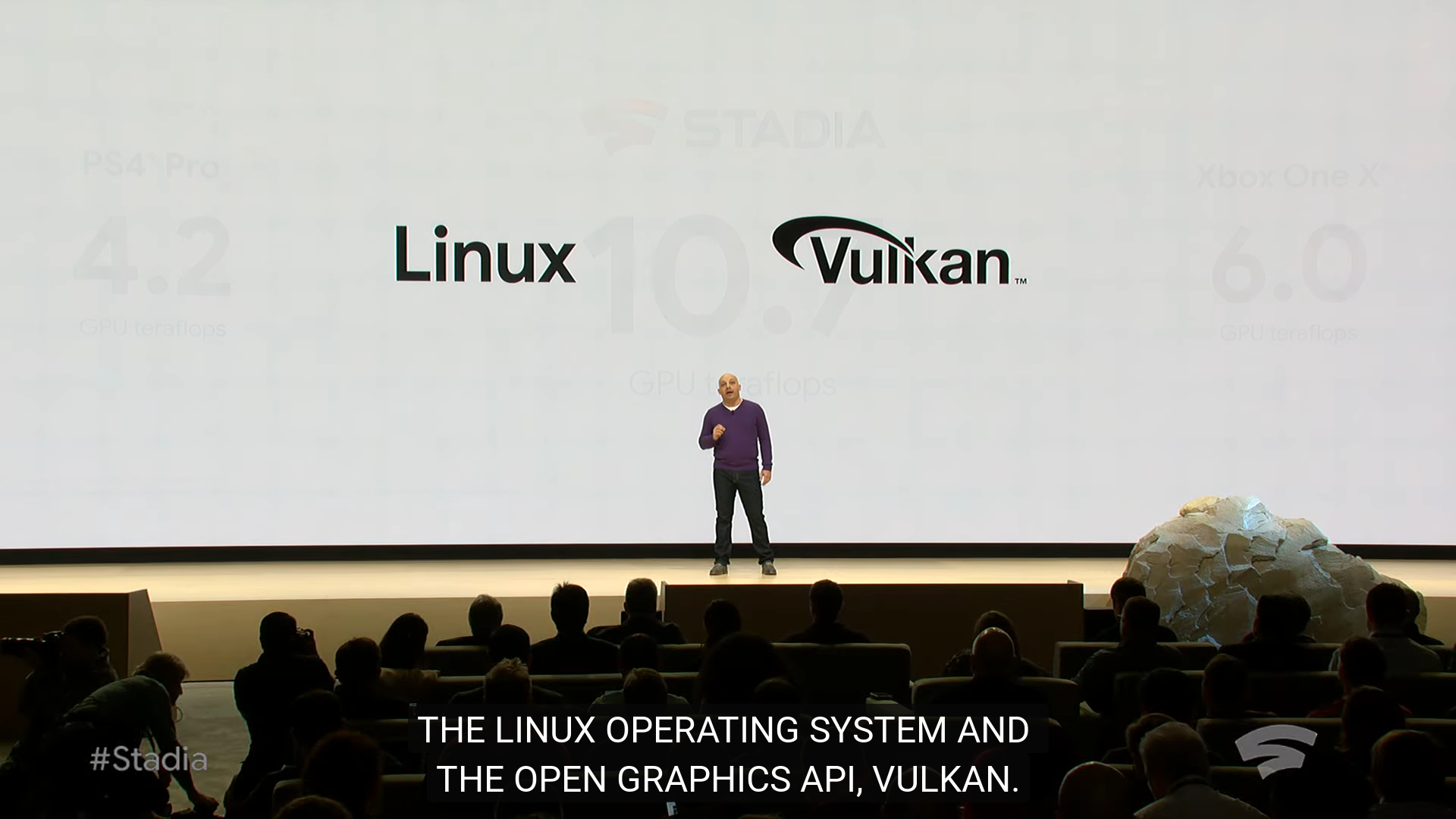
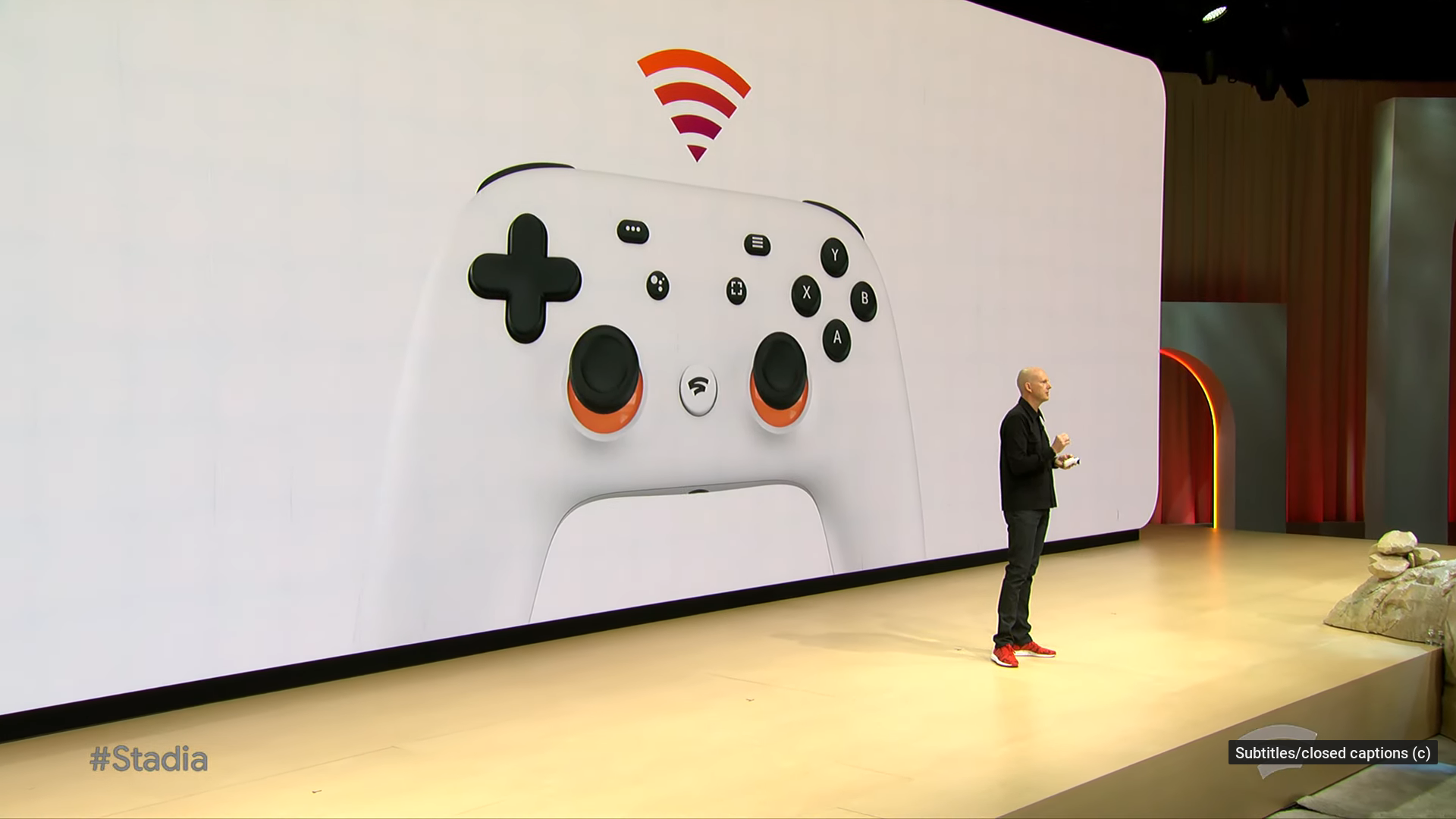
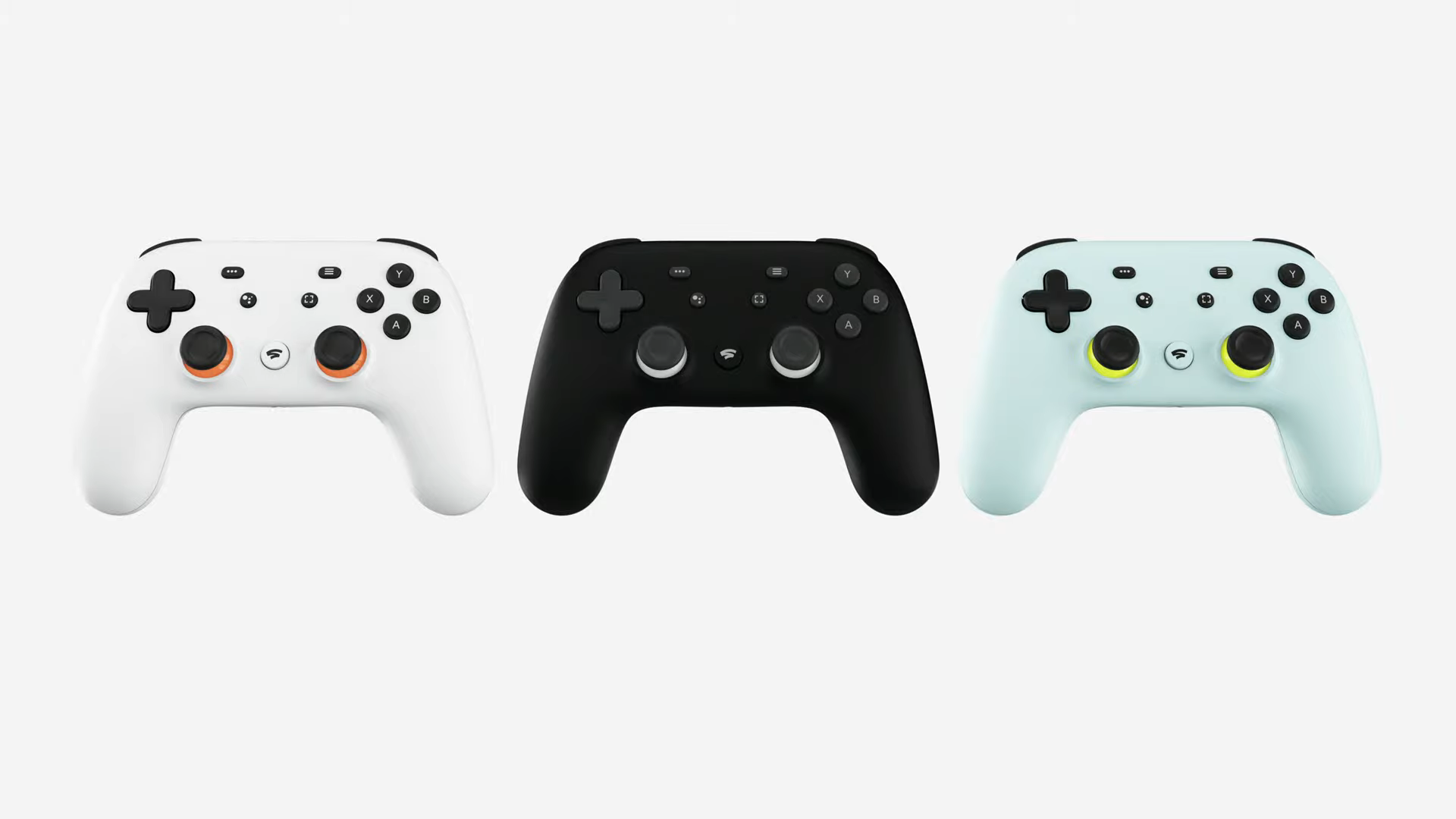
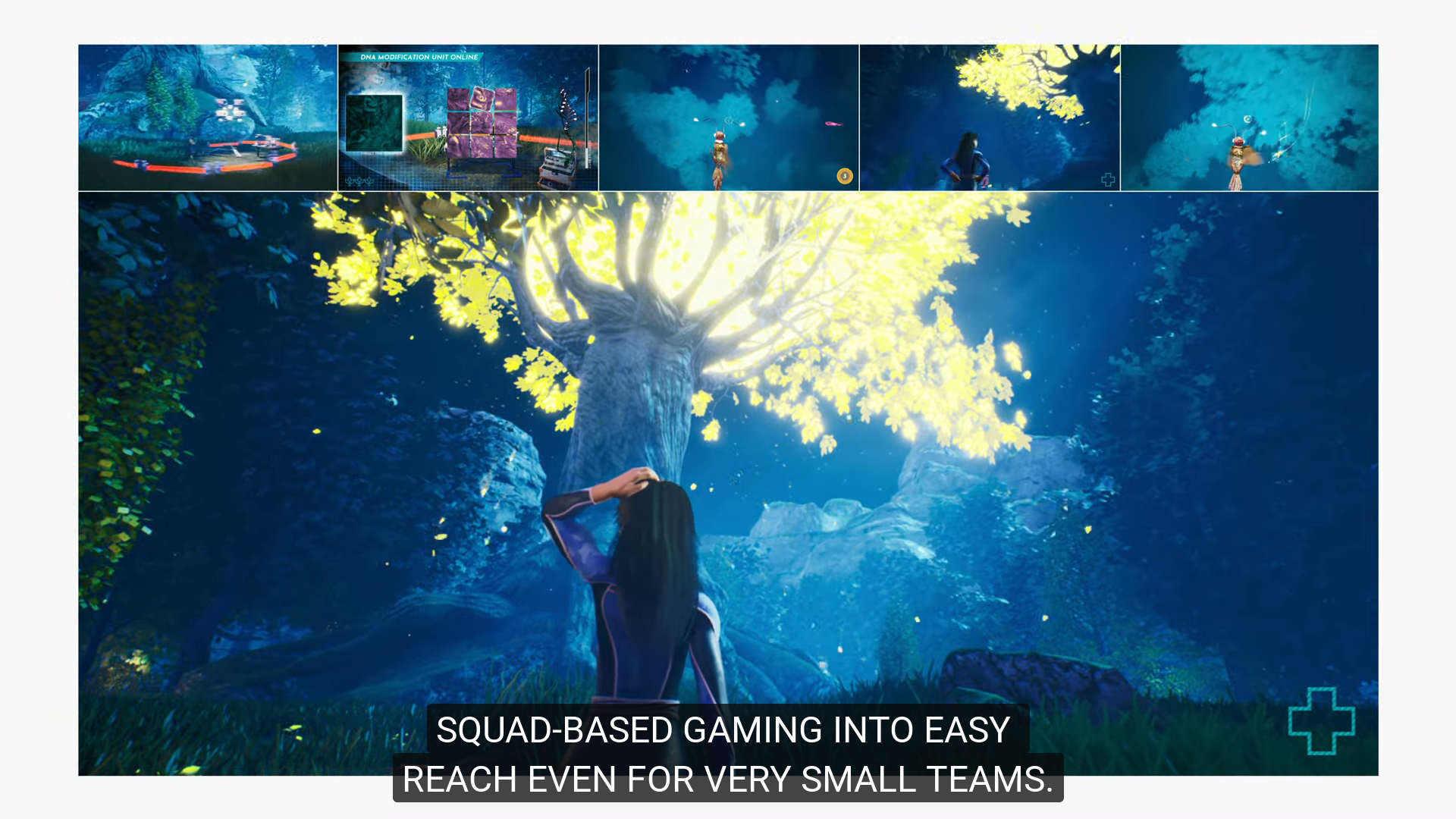
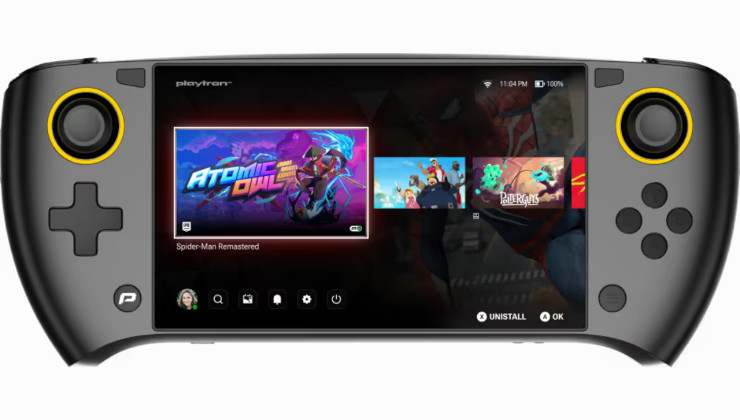
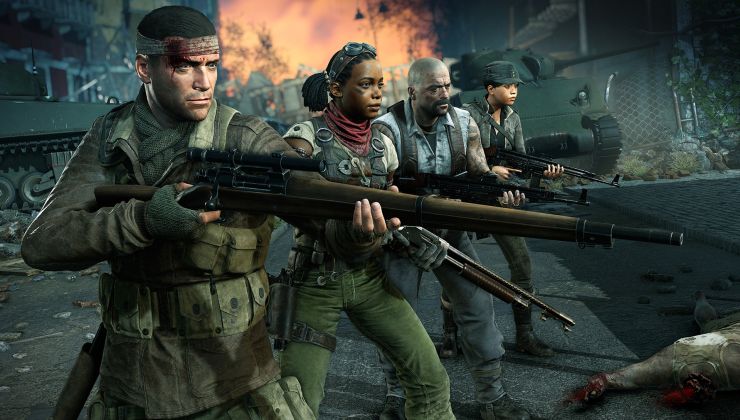





 How to set, change and reset your SteamOS / Steam Deck desktop sudo password
How to set, change and reset your SteamOS / Steam Deck desktop sudo password How to set up Decky Loader on Steam Deck / SteamOS for easy plugins
How to set up Decky Loader on Steam Deck / SteamOS for easy plugins
See more from me